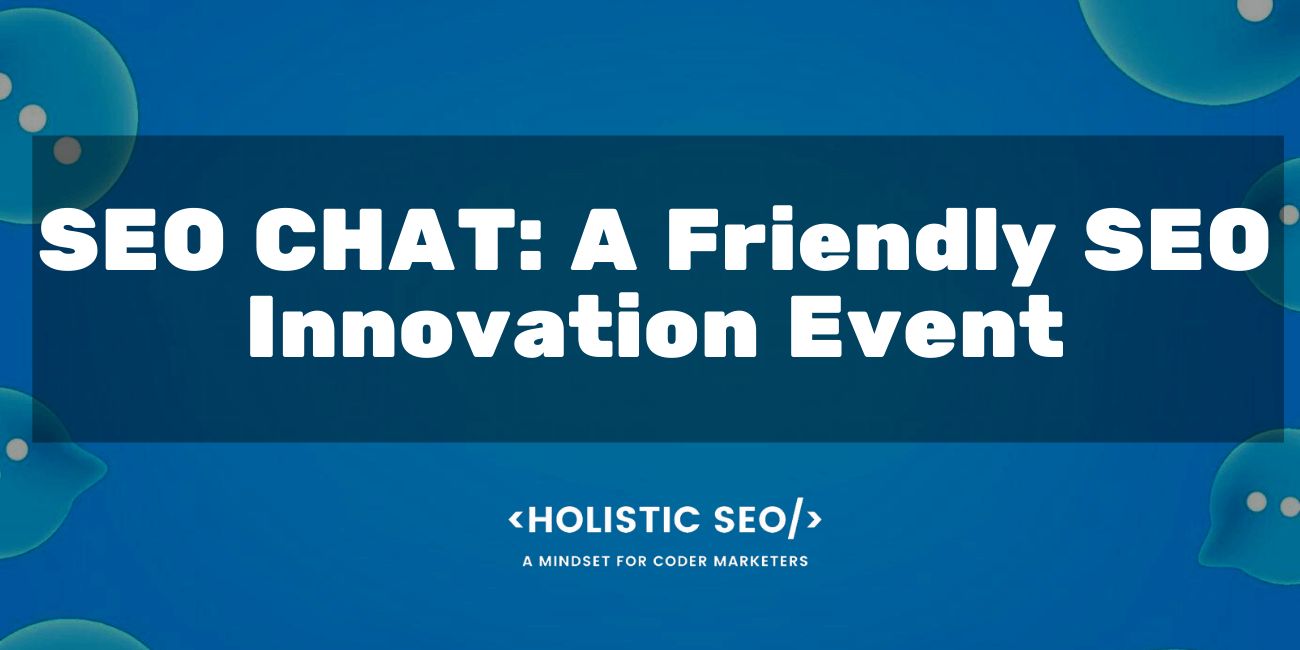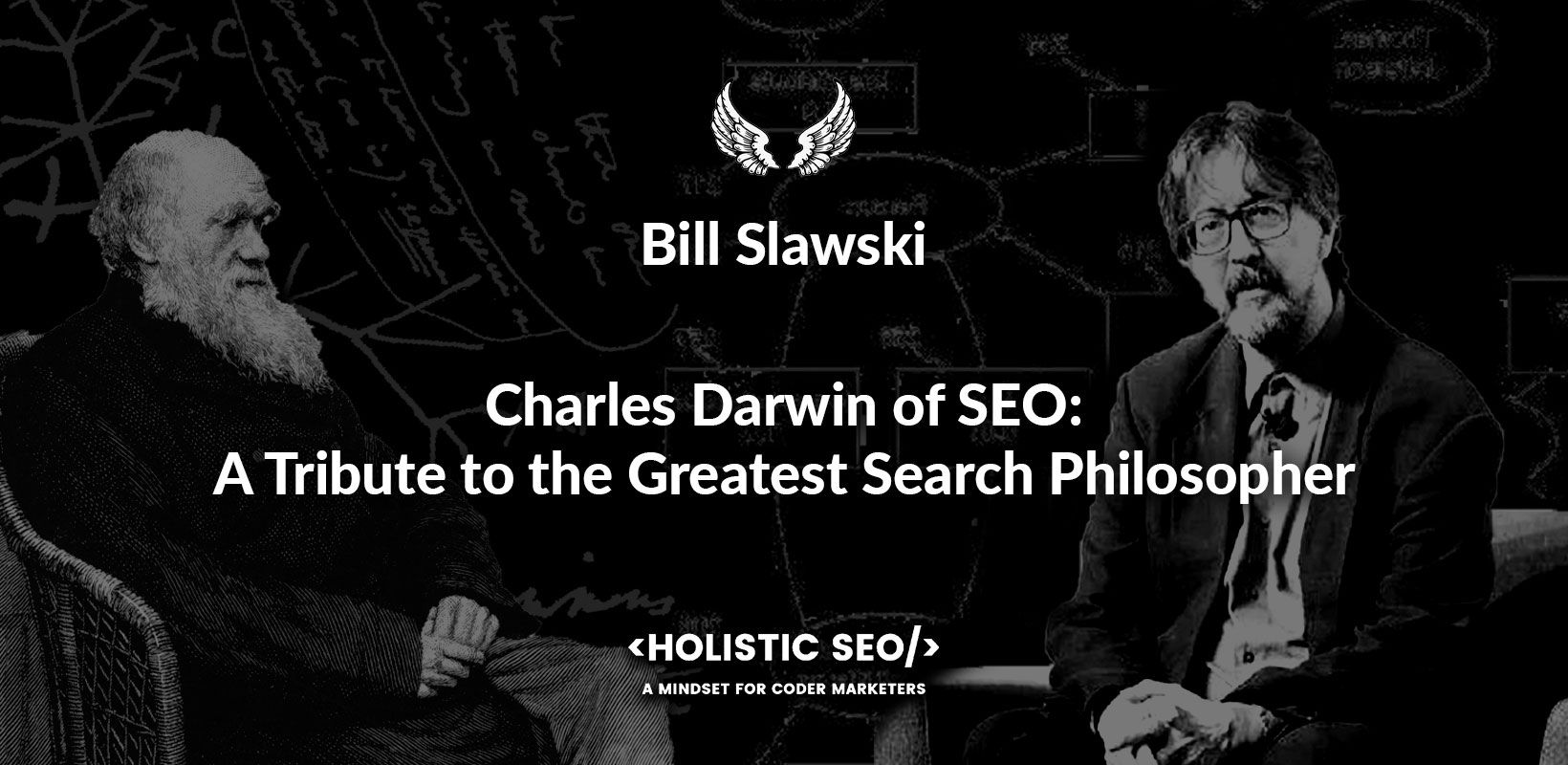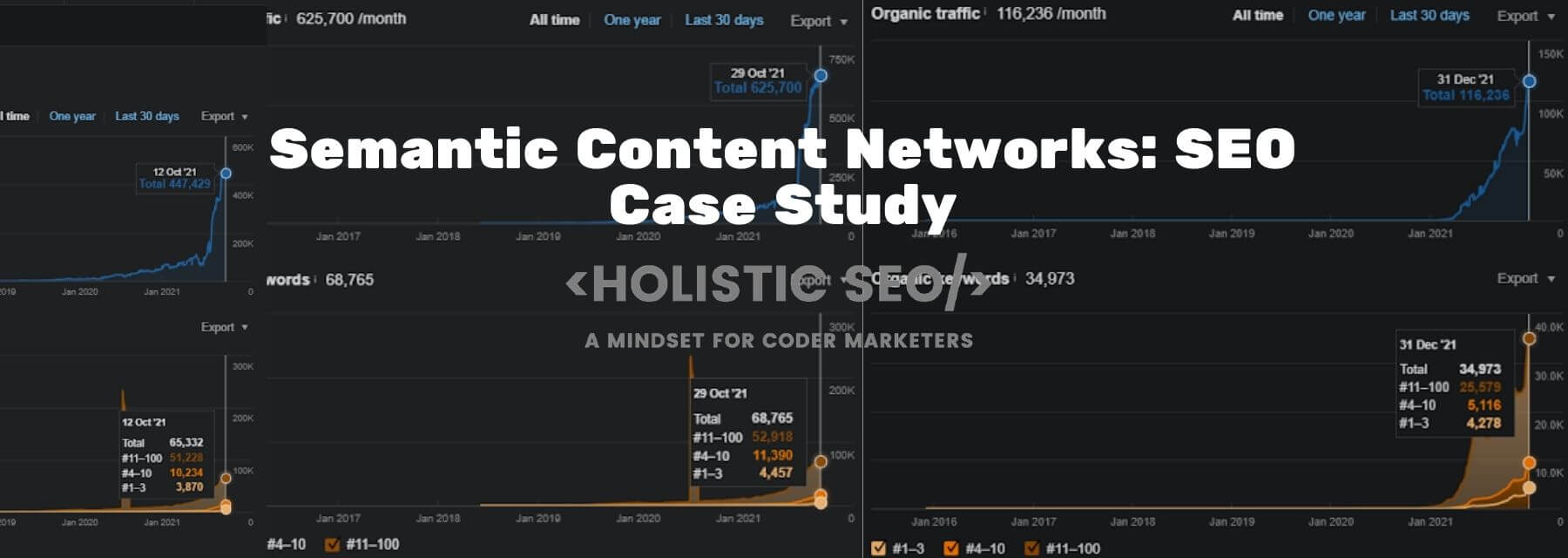SEO Chat is a Twitter Event that is performed over the #SEOChat hashtag to innovate SEO. SEO chat Twitter Event is started by Mordy Oberstein to support the SEO’s communication, friendship, and information share. SEO chat Twitter Events involve questions and answers related to search engine optimization. The digital marketing-related facts and SEO-related practices are mixed within the SEOChat questions and answers. SEO Chat is also a platform name from Twitter that focuses on sharing the SEO Chat events such as #SEOChat hashtag events, or #vcbuzz SEO tweet series. SEO Chat is also the name of the SEO Forum that is not active for a long time. In the Webmasterworld Forum, there is one more SEO Chat sub-forum. In this case, the platforms, types, and profiles of the SEO Chat concept are listed below.
- SEO Chat is a Twitter hashtag-based event that is launched by Mordy Oberstein.
- SEO Chat is the name of the SEO Forum.
- SEO Chat is the name of the Worldwebmaster sub-forum.
- SEO Chat is a sub-platform on Twitter to share all SEO Chat events.
The #SEOChat hashtag on Twitter is the main profile and meaning of the “SEO Chat” concept. “SEO Chat” is considered as a Twitter event to innovate SEO while improving the information shared between SEOs. SEO Chat means a chat and dialogue for understanding and improving SEO. A discussion of SEO can be an SEO Chat example. In terms of the SEO Chat Event, the next section includes an example #SEOChat event.
Koray Tugberk GUBUR published an SEO Chat event on YouTube to explain the questions and answers that are involved in SEO Chat.
SEO Chat Example from Twitter with Questions and Answers
On 17 February 2022, Mordy Oberstein invited the Koray Tuğberk GÜBÜR (owner and founder of Holistic SEO) for an #SEOChat (SEO Chat) event on Twitter. Koray Tuğberk GÜBÜR prepared 16 questions and answers related to Search Engine Optimization to share with the audience. Those SEO Questions include concepts and polls for SEO understanding. The 16 Questions and Answers for the example of the SEO Chat event are below.
- What is the difference between Query-dependent and Query-independent Ranking Criteria?
- If the query is “Protein Powder”, which one would have more weight, Query-dependent, or Query-Independent Ranking Factors?
- What is Query Processing? What is Processed Query? Does a Search Engine re-rewrite queries? Does it generate questions from queries?
- For the Query “X Stadium”, which SERP Features would you think to appear more? Local Map Pack, Images, PAA, Team Score Results, News, etc? Can you give me an order?
- How would you rank “Major and Minor search intents” for the Query of “Home Renovation”?
- What is the Semantic Distance between two Queries?
- What is the difference between Query and Lexical Semantics?
- Can an SEO change what a search engine thinks about a concept? Can we register non-existing things into their knowledge base? Can we change a brand’s relevance to a concept with a positive sentiment?
- “Predictive Document Ranking”: How to determine PageRank need per web page? How many declarations are necessary to create enough Information gaps? How many pages should change for a Re-ranking Event?
- Can changing word order affect Information Retrieval Score? Should results change from “Vision Board” to “Board Vision”?
- Which one is more important? Indigenous or Exogenous Ranking Factors?
- Which order is better for external anchor texts?
- Should we restrict the internal link count within the main content?
- Does internal link position matter?
- What is the similarity threshold? Why is it important for SEO?
- Do you think that Search Engine Optimization is harder than Programming or not?
- What would you change in Google’s algorithm? And, what would you like to tell @John Mueller for that? How do you feel about small websites? Or, news publishers? Are you happy with non-given voice search data? Or, should Google try to keep users on SERP? Should we be paid for this by Google?
SEO Chat Event Tweets and SEO Chat Tools, Forum Discussion Sample
SEO Chat Event, Questions, Answers, Facts, and Tools are below.
What are the Features of the SEO Chat?
SEO Chat features are listed below.
- SEO Chat involves innovation and a high level of SEO Expertise.
- SEO Chat has questions, answers, polls, and GIFs along with comments.
- SEO Chat is a weekly SEO Event on Twitter.
- SEO Chat helps SEOs to learn search engines and improve themselves.
- SEO Chat helps SEOs to meet with each other.
What are the Facts about SEO Chat?
The facts about SEO Chat are listed below.
- SEO Chat Event is older than 2 years.
- Over one hundred SEO Experts are joined SEO Chat including Koray Tuğberk GÜBÜR.
- SEO Chat contains every vertical of SEO.
Are SEO Chat Forum and SEO Chat Event connected?
No, SEO Chat Event and SEO Chat Forum are different from each other. But, they are both connected to the SEO Chat concept for providing SEO Innovation.
Are SEO Chat Twitter Account and SEO Chat connected?
Yes, SEO Chat Twitter Account shares SEO Chat events, tweets, questions, and answers.
Are SEO Chat Tools Used for SEO Chat?
No, there is no SEO Chat tool, although Twitter and different technologies are used to perform SEO Chat.
To see the SEO Chat questions and answers as plain text, check the next “SEO Chat Questions and Answers” section.
SEO Chat Questions and Answers
Welcome to the #SEOChat! Let’s talk about “RankLab”. RankLab is a Machine Learning platform for configuring Google’s Ranking Algorithms for resources and sources. Today, we will dive into the “Predictive Ranking”.
Just a few ground rules before we get #SEOChat off the ground.
1. I’ll ask questions with Q1, Q2, so make sure to respond w/ the corresponding A1, A2, etc.
2. Don’t forget the #SEOChat hashtag, or we won’t be able to see your responses/comments.
3. As always, be nice or else.
Q1 What is the difference between Query-dependent and Query-independent Ranking Criteria?
A1 Query-dependent and Query-independent ranking criteria are fundamentals for re-ranking algorithms. A document can be relevant for a query, but query-independent factors can make it eliminated. Information Retrieval Score can be a factor for Query-dependent ranking, and PageRank can be a Query-independent factor.
Q2 If the query is “Protein Powder”, which one would have more weight, Query-dependent, or Query-Independent Ranking Factors?
A1 Answer is related to “Relative Ranking”. In an Inverted Index, the most quality document and less quality document will have different types of scores. The thresholds are determined “relatively” based on threshold sources. For “Protein Powder”, the Query-independent Factors will have more weight. The search intents are ordered as:
Buy Protein Powder
Find Protein Powder Reviews
Find Protein Powder Brand Reviews
Compare Protein Powders
How to use Protein Powders
What are Protein Powders
Q3 What is Query Processing? What is a Processed Query? Does a Search Engine re-rewrite queries? Does it generate questions from queries?
A3 Query Processing is the parsing of the query for calculating the term weights for possible search intents and activities. Processed Query is the query’s rewritten, and optimized versions. The processed query can be a question. The Search Intent for “Protein Powder” is its processed version.
Q4 For the Query “X Stadium”, which SERP Features would you think to appear more? Local Map Pack, Images, PAA, Team Score Results, News, etc.? Can you give me an order?
A4 SERP Features are relevant to the Search Intent Distribution. For “X Stadium” Query Template with popularity order:
– Entity Relation Refinement
– Knowledge Panel
– GBP Panel
– Image Pack
– PAA
– Video Pack
– Web Results
Q4 How would you rank “Major and Minor search intents” for the Query of “Home Renovation”?
A4 “Home Renovation” is a “service-seeking query”. For the “Noun Renovation” Query Template:
Major Search Intents: Find an X Renovation Service Near Me, Review X Renovation Services, How I do Renovate X and Cost…
Minor Search Intents: X Renovation Definition, Difference, Comparison…
Q5 What is the Semantic Distance between two Queries?
A5 Semantic Distinctiveness and Similarity are different. Armour can be semantically relevant but different from the sword. The distance between two queries represents how the documents need to be shaped. Semantic Distance between queries is determined by edges and nodes between concepts in a graph network.
Q6 What is the difference between Query and Lexical Semantics?
A6 Query Semantics rely on Query Co-occurrence and Correlation along with “interchangeability” The Lexical Semantics rely on dictionary meanings. A query word can have a different meaning than a dictionary definition. Two words can be irrelevant, but they can appear in queries together with no concrete reason.
Q7 Can an SEO change what a search engine thinks about a concept? Can we register non-existing things into their knowledge base? Can we change a brand’s relevance to a concept with a positive sentiment?
A7 Yes*3. A search engine learns always-on. It can change opinion, or recognize something new. Without search demand, documents are collected and classified. A brand can make a Knowledge Domain more expanded, and it can affect all other brands’ Topical Authority/Categorical Quality.
Q8 “Predictive Document Ranking”: How to determine PageRank need per web page? How many declarations are necessary to create enough Information gaps? How many pages should change for a Re-ranking Event?
A8: “Predictive Information Retrieval” relies on introductory sections of documents for initial relevance calculations. Predictive Document Ranking relies on Query-dependent and independent factors with pre-determined thresholds. For a New SEO Project:
The PageRank, Relevance, and Comprehensiveness thresholds should be determined. This section is relevant to “Relative Ranking”.
Q9 Can changing word order impact the Information Retrieval Score? Should results change from “Vision Board” to “Board Vision”.
A9 This section is about “Probabilistic Ranking”. Yes, Word Order impacts IR Score. No, it shouldn’t change, but it changes. Phrase-based Indexing works with Phrase Lists, Co-occurrences, and Proximity. Initial, central, and context words will have more weight. Word order changes these.
Q10 Which one is more important? Indigenous or Exogenous Ranking Factors?
A10 It depends. The direction of the Google search engine is from Exogenous Ranking Factors to Indigenous R. Factors. Why? Because, it is more controllable, and manipulation possibility is harder. Quality can be seen from content better, rather than external link flow.
Q 11 Which order is better for external anchor texts?
A- Branded, Generic, Branded + Generic
B- Branded, Branded + Generic, Generic
C- Generic, Branded, Branded + Generic
A11 Brand Name → X, Branded + Generic Anchor Text → X Brand Y Product
If there is a high level of content production, choose B.
If there is not enough content, Choose C and consolidate PageRank for higher historical data earlier.
Q12 Should we restrict the internal link count within the main content?
A12 Yes, every internal link will divide the PageRank while diluting the main purpose of the content. According to the internal link count, the content’s length, or purpose can change from an article to hub-type content.
Q13 Does internal link position matter?
A13 For Crawling, No.
For PageRank Flow, Yes.
For Relevance, Yes.
Q14 What is the similarity threshold? Why is it important for SEO?
A14 Similarity threshold is to determine whether two documents are similar enough or not. If two documents are too similar to each other, one of them will be canonical. Search engines can cluster documents and choose one of them cross-domain canonical, as representative content. Being shadowed by another source can be seen during broad core algorithm updates.
Q15 Do you think that Search Engine Optimization is harder than programming or not?
A15 This is an opinion-based question. For me, SEO is harder than coding and programming. Because SEO also involves programming. And, there is no school for SEO. Search engines do not give, what they do, what you should do. Results come 6 months after. In programming, everything works in 5 seconds with clear documentation. SEO is harder than web development.
Q16 What would you change in Google’s algorithm? And, what would you like to tell @John Mueller about that? How do you feel about small websites? Or, news publishers? Are you happy with non-given voice search data? Or, should Google try to keep users on SERP? Should we be paid for this by Google?
A16 Thank you to John Mueller, for every question that he answers for all these years. From my point of view, I would like to see voice search data. I know Google sends more traffic to the websites every year, but the percentage gets smaller, too.
#SEOChat with RankLab and Predictive Ranking is ended. Thanks for joining, and sharing your information with us.
Last Thoughts on SEO Chat and Holistic SEO
SEO Chat is a useful and beneficial event for SEOs to improve each other. Since SEO Chat focuses on a friendly environment for SEO information sharing, it aligns its main principle with Holistic SEO. Holistic SEO focuses on every vertical of SEO. SEO Communications, events, and chats are some of the verticals of SEO. In this context, the SEO Event is one of the most useful events and traditions for SEOs.
- Sliding Window - August 12, 2024
- B2P Marketing: How it Works, Benefits, and Strategies - April 26, 2024
- SEO for Casino Websites: A SEO Case Study for the Bet and Gamble Industry - February 5, 2024


